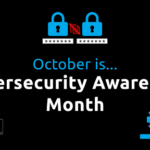
IT hygiene refers to cybersecurity best practices that protect your infrastructure and devices from IT security threats, according to the InfoSec Institute. Practicing good cyber hygiene is part of a proactive approach to cybersecurity in an era when cybercrime is a pressing concern across all industries worldwide. The data breach epidemic is still a serious problem: In 2018, the number of consumer records containing personally identifiable information (PII) exposed by breaches went up by 126 percent over the previous year, according to the Identity Theft Resource Center’s 2018 End-of-Year Data Breach Report.
If everyone around you is sneezing and coughing, it makes sense to be vigilant about hand washing. So, in this era of widespread data breaches and hacking, your business should definitely be doing the technical equivalent of scrubbing with soap and wiping things down with Lysol. Here are a few questions you should ask yourself to gauge whether your cyber hygiene is as good as it should be.
Are you using the right tools? Just like you can’t properly wash your hands without soap, you can’t maintain good cyber hygiene without the correct tools, according to Symantec. Your arsenal of IT hygiene products should include anti-virus/malware software, a next-gen firewall, and email/spam filtering, to start. Visit the cybersecurity section of our site for more details on IT security no-brainers for your business.
Do you update everything on a routine basis? One of the most important components of good cyber hygiene involves updating apps, operating systems, and devices regularly, according to CSO. You might be tempted to delay installing updates and patches, but out-of-date devices can open the door to cyberattacks, since cybercriminals can take advantage of unpatched vulnerabilities.
Are you aware of what’s connected to your network? Part of good cyber hygiene is taking an inventory of what’s connected to your network, according to the InfoSec Institute.
Do your remote workers have secure access points? Anyone connecting remotely to your company network should do so using a secure access point, CSO states. For example, a virtual private network (VPN) can allow you to securely connect to the corporate network from an outside location. Remote workers should never connect using unsecured networks, since that could potentially give hackers and malware access to sensitive data.
Does your business enforce best password practices? Another big part of good cyber hygiene is comprehensive access management, which involves two-factor authentication and strong passwords, according to CSO. Weak and stolen passwords are the root cause of many data breaches, so ensuring that everyone in your organization follows best password practices is key if you want to minimize your risk level. Using a password manager can make a big difference.
Once you’ve answered these questions, you should have a pretty good idea of whether your IT hygiene is already good or if it could use some improvement. If you’d like to learn more about minimizing your data breach risk levels and maintaining comprehensive cybersecurity, our team of expert techs can help.
We work with various IT security solutions from a wide range of vendors in our partner network, and we can help you determine which offerings best meet your company’s needs. Contact us today by calling 877-599-3999 or emailing sales@stratospherenetworks.com.


